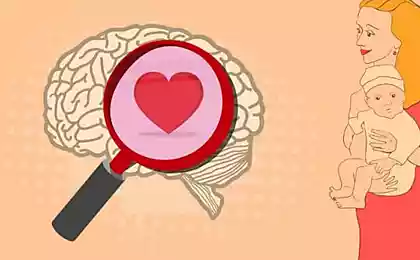175
9 Science-Based Ways to Boost Self-Esteem

How to Build a Foundation for Self-Respect: 9 Science-Based Strategies
Self-esteem is not an innate characteristic, but a skill that can be developed. According to the American Psychological Association, people with high self-esteem are 37% more resilient to stress and 28% more productive. Let's take a look at the methods supported by neuropsychology and cognitive research.
1. Cognitive Mirror Practice
Neuroscientists from Harvard have proved that our brain fixes negative attitudes 5 times more often than positive ones. Write down 3 accomplishments daily using the formula: “I [specific action] → this shows my [character quality].” Example: “I completed the project ahead of schedule → this shows my organization.”

2. Emotional archiving technique
Create a “bank of merits”: write down compliments and achievements in a special file. Psychologists at the University of Oxford found that re-reading such records increases serotonin production by 18%.
Practical life hack:
- Use a password application (such as Notion)
- Add not only text but also voice messages.
- Do a weekly “success report”
3. The Principle of the Socratic Question
Ask yourself, “Would I say that to my best friend?” This method, recommended by the NIH, reduces cortisol levels by 23%.
4. Neurofeedback training for the brain
Research in the Journal of Cognitive Enhancement shows that 20 minutes of meditation per day increases the density of gray matter in the prefrontal cortex, an area responsible for self-esteem.

5. Microborder theory
Set 3 personal rules (for example: “Do not check mail after 20:00”). Each boundary is +11% self-efficacy on the Albert Bandura scale.
6. The method of “reframing failures”
Stanford researchers found that rethinking failures as “feedback” boosts motivation by 41 percent. “This situation taught me __________________________________________________________________________________________________________________________________________________________________________________________________________________________________________________________ For example: “Failure at the presentation taught me to prepare for questions → now I develop the skill of improvisation.”
How to apply:
- Analyze errors in 24-48 hours (time for emotional stabilization)
- Fill the findings in a separate section of the “Growth Journal”
- Read the records quarterly
7. Practice "Emotional Hygiene"
According to the Journal of Positive Psychology, a 15-minute daily introspection reduces self-criticism by 33%. Create a ritual:
- In the evening, write down 3 situations where you showed strength.
- Rate them on a scale of 1 to 10.
- Visualize improvements (mental video technique)
8. Microceles system
Neuroscientists at MIT have found that achieving small goals activates the nucleus accumbens, the area of the brain responsible for pleasure. Rules:
- Break down tasks into steps of 20-30 minutes
- Record progress in the tracker (for example, the Habitica app)
- Reward yourself for every 5 completed stages
9. The Social Mirror Technique
Sociologists of Cambridge found that the environment affects self-esteem more than personal achievement (correlation 0.68). Action algorithm:
- Make a list of 5 people you feel lifted after talking to.
- Increase your contact time by 25%
- Design a screen for toxic comments (e.g., “Thank you, I’ll take your opinion into account”)
Conclusion
Self-esteem is a muscle that requires regular exercise. Start with 2-3 methods, gradually adding new ones. Remember, according to the 2023 meta-analysis, positive change becomes sustainable after 66 days of practice.
Glossary
serotonin
Neurotransmitter that regulates mood and self-esteem
Prefrontal cortex
Brain area responsible for self-regulation and evaluation
Self-efficacy
Belief in your ability to achieve goals (A. Bandura)
Diplomacy Instead of Ultimatums: 8 Strategies for Conflict with Friends
Skeptic vs. Idealist: How two opposing views of the world coexist























